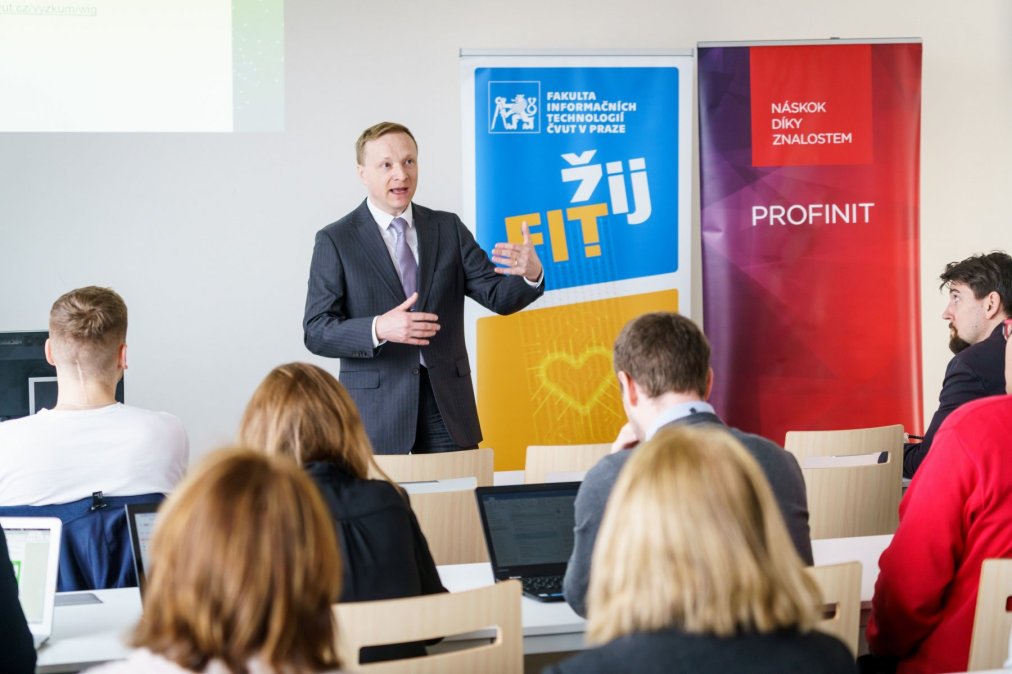
Together with Profinit EU, we have launched a newly established Open Data Laboratory (OpenDataLab) where students can work with open data sources. In this way, students working on their course papers and theses have a unique opportunity to study data related to transport services, government’s economic policies, the environment and many other fields.
Open data, smart cities, IoT and information security are currently some of the hottest topics in IT. Data is often viewed as a possibility to spare or streamline the existing processes and improve people’s everyday lives. Smart litter bins for optimal waste collection, smart parking lots or lamps that can detect the level of air pollution – this all sounds a little like science fiction. However, Prague already has several of these lamps installed.
“There is a huge amount of available data, but their use lags behind. New applications, analyses and conclusions will be made in the lab that will improve people’s everyday lives. Imagine that you have data on the number of cars entering Prague at any given moment, you know how many parking places there are in Prague and you know their occupancy and you also have data on air pollution. The data will tell you that you have surpassed the limit for how much traffic the city can handle and you can start to regulate traffic dynamically,” says Ing. Marek Sušický, who is responsible for OpenDataLab on behalf of Profinit.
In OpenDataLab, students will be involved in research in the field of open and linked data. Research into efficient search for open and linked data and their administration will help solve practical tasks in the field of data journalism, for instance. At the same time, this helps create demand for opening and linking of other interesting sources of data generated by the public administration that can subsequently be made publicly accessible in the National Open Data Catalogue.
“Linking together related data sources contributes to correct interpretation of data. Big amounts of money in budgets can be directly linked to the size of the organization. Operation or occupancy of parking spaces is interesting for organizers of sports or cultural events. Linking is also good for the original data sources, as it adds more context,” says Ing. Jaroslav Kuchař, Ph.D., head of OpenDataLab.


